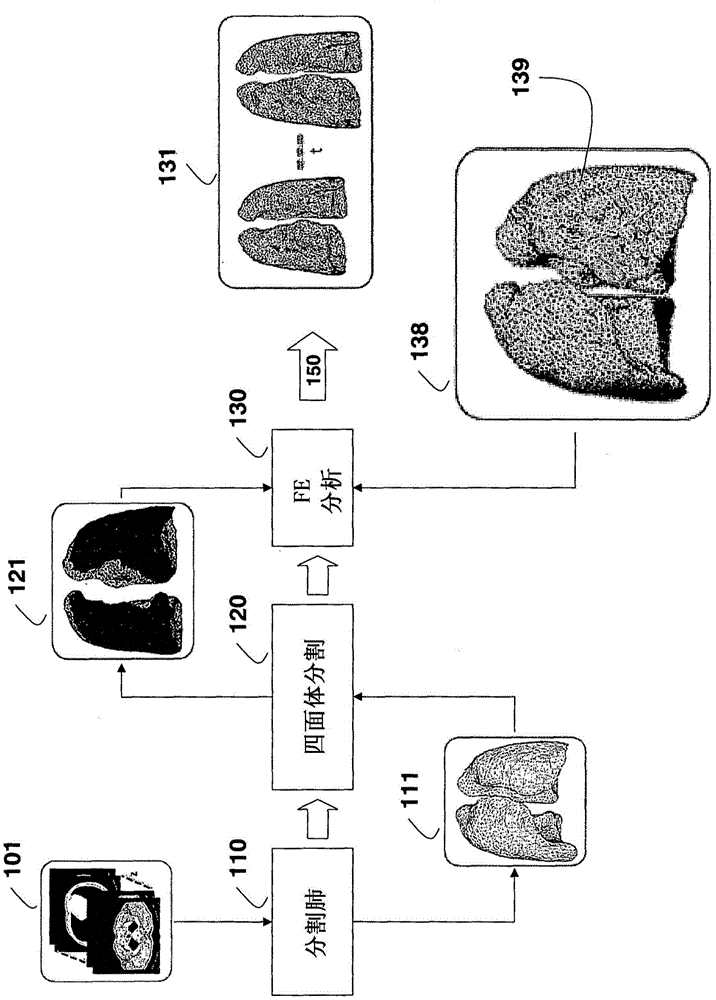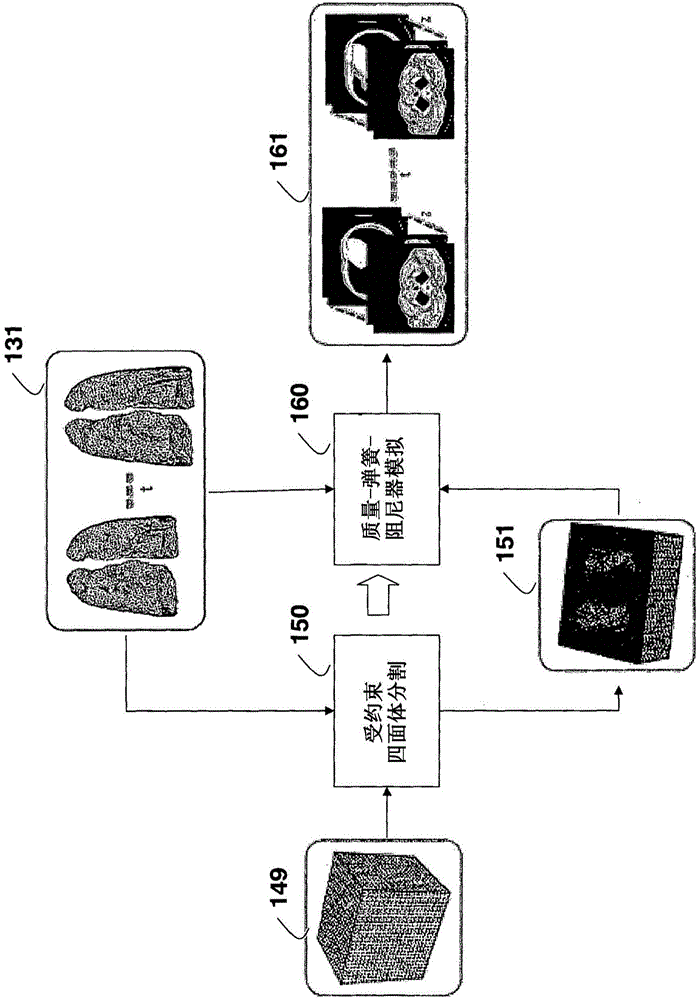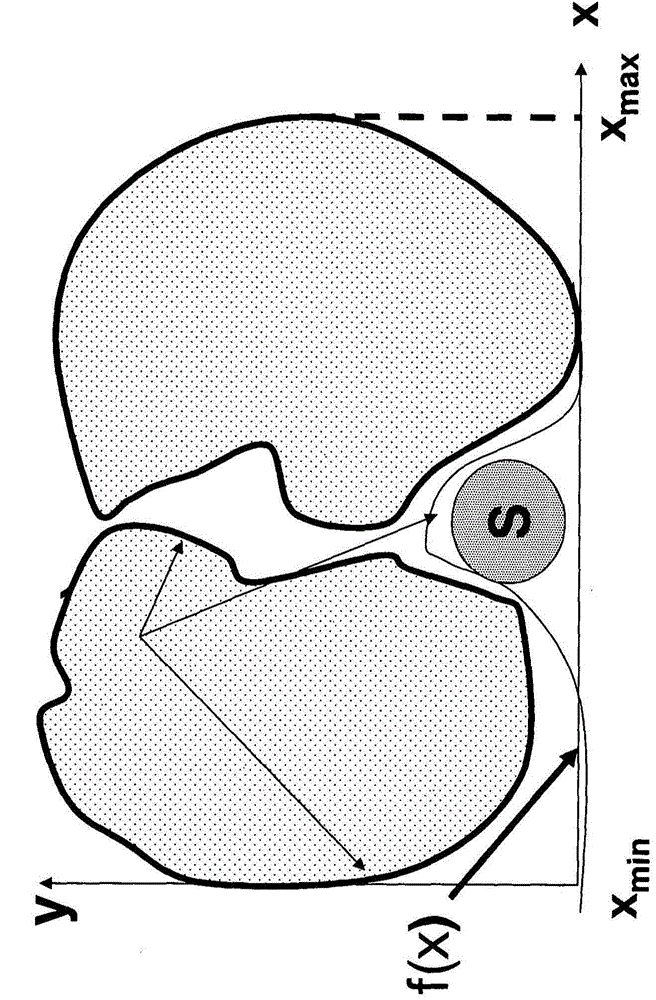Method for simulating thoracic 4DCT
A 4D, chest technology, applied in the field of 4D computed tomography, can solve the problem that the tumor location cannot be determined in situ
- Summary
- Abstract
- Description
- Claims
- Application Information
AI Technical Summary
Problems solved by technology
Method used
Image
Examples
Embodiment Construction
[0025] Chest 4DCT Simulator Method
[0026] figure 1 and figure 2 A processing pipeline of a chest four-dimensional computed tomography (4DCT) simulator method according to an embodiment of the invention is shown. The method includes lung deformation and 4DCT scan simulation. The method can be performed in a processor coupled to memory and input / output interfaces known in the art. It should be understood that the present invention may also be used to simulate other types of tissue or organ deformations, and utilize other types of medical scans known in the art.
[0027] The input to the method is a single chest CT scan 101 . The CT scan is segmented 110 to generate a surface mesh 111 of the lungs. A tetrahedral partitioning 120 is applied to the surface mesh to obtain a first volumetric mesh 121 .
[0028] Using boundary constraints and load definitions 138 , a finite element (FE) analysis 130 is applied to the first volume mesh to obtain lung deformations 131 . Lung d...
PUM
 Login to View More
Login to View More Abstract
Description
Claims
Application Information
 Login to View More
Login to View More - R&D
- Intellectual Property
- Life Sciences
- Materials
- Tech Scout
- Unparalleled Data Quality
- Higher Quality Content
- 60% Fewer Hallucinations
Browse by: Latest US Patents, China's latest patents, Technical Efficacy Thesaurus, Application Domain, Technology Topic, Popular Technical Reports.
© 2025 PatSnap. All rights reserved.Legal|Privacy policy|Modern Slavery Act Transparency Statement|Sitemap|About US| Contact US: help@patsnap.com



